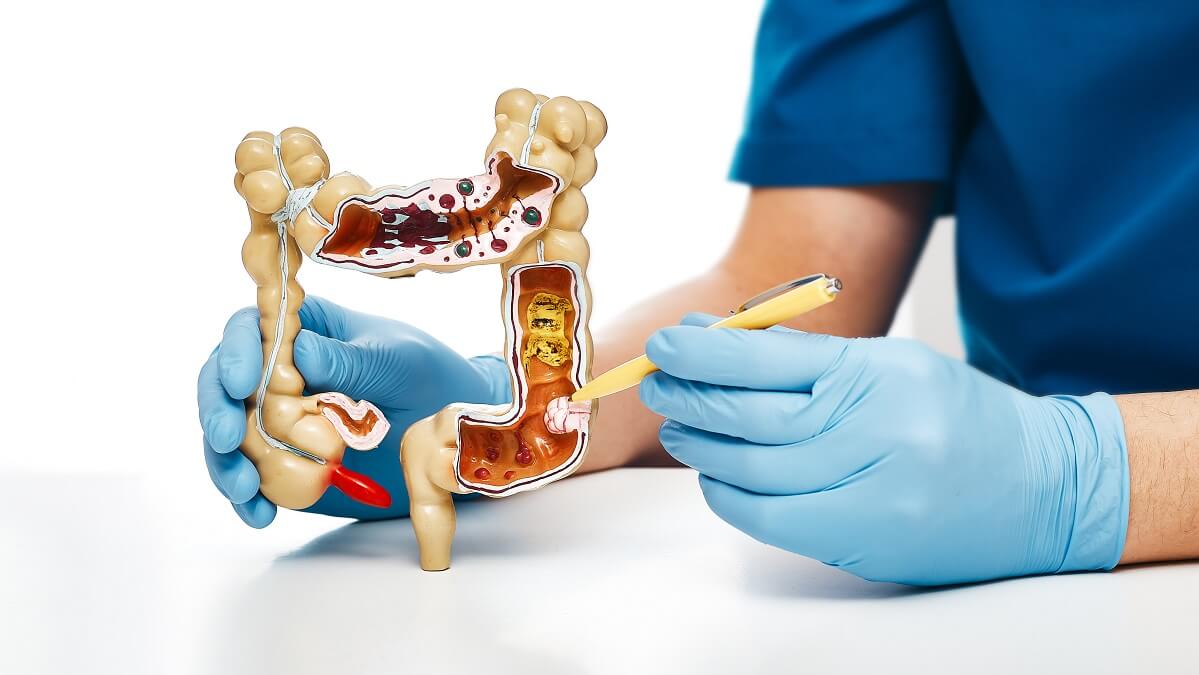As you age, your risk of contracting bowel cancer increases. That’s why you start receiving bowel cancer screening test kits every couple of years after age 50.
Bowel cancer is a serious problem, so any breakthroughs in its treatment and prevention are welcome, and a potentially significant breakthrough has been flagged in a newly published study.
The breakthrough entails a new treatment strategy that could help reduce the risk of bowel cancer recurrence by 28 per cent. That’s a significant figure.
The clinical trial known as FOxTROT 1053 involved patients across 85 hospitals in the UK, Denmark and Sweden. Participants had been diagnosed with early stage bowel cancer and had chemotherapy treatment before surgery.
That group showed a 28 per cent decrease in the chance of the cancer returning.
The results of the randomised controlled trial, published in the Journal of Clinical Oncology, may well open the door for a revolution in the treatment of other cancers as well.
Dr Laura Magill, an associate professor at the Birmingham Clinical Trials Unit and co-author of the study, was delighted with the results. “It’s wonderful to see such positive results from this robust trial, which we have been following with great interest,” she said.
“It’s fantastic news that has the potential to make a real difference to the lives of the thousands of people diagnosed with earlier stage bowel cancer every year.”
Dr Magill believes the same treatment strategy could also be successful in treating other forms of cancer. She said: “A growing body of evidence is showing the value of pre-operative chemotherapy in several other cancers, and we believe that our results could transform how we approach colon cancer in the clinic.”
The trial divided participants, all of whom had early-stage colon cancer, into two groups. The first group was provided with a conventional treatment regime, which involves surgery followed by 24 weeks of chemotherapy.
The second group had their regime modified to include chemotherapy both before and after surgery. This group showed a significant reduction in recurrence of the cancer.
Chemotherapy is challenging, of course, so having two courses can take its toll. Geoff Hoggard, a trial participant, described the experience as “hard going”. For him, though, all that hard going paid off in the end.
“Eventually, it was all worth it,” he said. “I’ve had no complications since the surgery, and there were no signs of cancer in the months and years after. Six years on, I’m back living life to the full.”
As good as that outcome is, for Mr Hoggard and anyone else who benefits from the treatment, a far better one would be preventing the development of the cancer in the first place.
In Australia, this is where the federal government’s National Bowel Cancer Screening Program comes in. When your next screening kit arrives in the mail, don’t put it aside and forget about. Taking five minutes (twice) to complete a slightly unpleasant task is surely far preferable to surgery and a couple of rounds of chemotherapy.
Do you know someone who has been diagnosed with bowel cancer? What do you do when your screening kit arrives in your letter box? Why not share your thoughts in the comments section below?
Also read: Could this diet cut bowel cancer risk?


i usually do the test and hope the results are true.